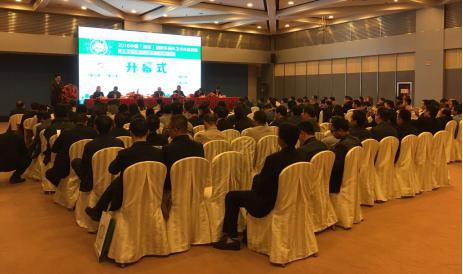Heteropessimism of the Intellect
Heteropessimism of the Intellect
In Sophie Kemp’s fiction, gender roles are a prison Still from Tezuka Osamu’s In the Beginning: The Bible Stories(1997). | YouTube
Still from Tezuka Osamu’s In the Beginning: The Bible Stories(1997). | YouTube o
r
d
F
a
c
t
o
r
y
Paradise Logic by Sophie Kemp. Simon & Schuster, 256 pages. 2025.
During the Holocaust, there was a word for a prisoner who was resigned to his death: a Muselmann. Primo Levi described Muselmänner in his memoir Survival in Auschwitzas “an anonymous mass” that formed the “backbone of the camp.” “[They are] non-men who march and labour in silence, the divine spark dead within them, already too empty to really suffer,” he wrote. Muselmänner were men stripped entirely of any individuality or discernible identity; sheer deprivation debased them beyond the limits of recognizable humanity. In Remnants of Auschwitz, Giorgio Agamben calls this process “desubjectification,” which rendered the Muselmann “the complete witness,” a figure whose narrative presence could only function as testimony of the hideousness and abjection of the camps. All the Muselmänner“who finished in the gas chamber have the same story, or more exactly, have no story,” wrote Levi.
This isn’t for lack of trying. Since 2022, Sophie Kemp has published at least two stories about characters imprisoned in fictional concentration camps who readily acquiesce to their violent, horrific fates. “Solo Poly,” a short story published in Granta, is set in a remote compound where single women are auctioned off to married couples looking to spice things up. In “Yours Truly, Adonis,” published in this magazine, young men are imprisoned in a labor camp where “The Manager” trains them to become ideal retail workers at “The Store,” an enterprise that somewhat recalls Bush-era Abercrombie & Fitch. Both stories subject their characters to compulsory gender conformity programs where they are at risk of being killed by their captors. The young men in “Yours Truly, Adonis” are commanded to achieve peak physicality by playing flag football and lifting weights; the women in “Solo Poly” are “provided instruction on how to be a perfect lady,” a regimen that involves speaking in the proper tone of voice, eating very little, and most importantly, acquiescing to total sexual domination by their camp overlords and the couples who purchase them.
The unlikely submissiveness of Kemp’s protagonists is justified by a diminished consciousness that places them outside of human experience. These characters think and behave in a manner demonstrably unlike how you or I would in their situation. In “Yours Truly, Adonis,” the narrator is the collective “we” of the prisoner-mass, a group that speaks in a monotone even while recounting instances of spectacular violence: “One Adonis tragically got hit by a sixteen-wheeler, his head rolled clean off of his body. Another one tripped and fell into a puddle—his flip flops were a size too big—and we watched him slowly asphyxiate. There was nothing we could do, really.” Hailey, the protagonist of “Solo Poly,” is regularly beaten and forced to have sex with a couple named Stacy and Alan. She is somewhat more ensouled than the Adonises and at least dimly aware of her subjugation, but equally ambivalent about it: “Charles D was very skilled with his beatings. It reminded me of Rickerts McClure,” she muses of her captor. “I thought of his intermittent rapings. I missed his availability.” After Charles D chases her down in the woods to harvest her organs, she assumes her position on the operating table, fantasizing about a different flavor of subordination: marriage. “My husband laying me out on the bed and making love to my form without violence,” she thinks. “My husband taking me on a beach vacation. My husband telling me I look lovely in my dress.”
Kemp’s concentration camps literalize gender expectations as compulsory, inescapable structures in which people aren’t individuals but representatives of an ideal whose duties and desires are ordained by male authority figures. Her allegorical universes also contain a functional critique of labor relations—Hailey and the Adonises are tortured in the name of customer service—and there is some emotional realism in the uncanny, at times sexy, atmospheres of compulsion and coercion Kemp conjures for her Muselmänner. Indeed, desire and exploitation do shade imperceptibly into one another under patriarchy, or when you have to have a job. You get what she means.
Paradise Logic, her debut novel, is set mostly in Gowanus, yet it dares to ask: Can a twenty-three-year-old girl who lives in Brooklyn also be a Muselmann? Kemp gives us an answer in the form of Reality Kahn, who is straightaway introduced as some kind of idiot. “This was a girl who had a low quantitative IQ. This was a girl who could not draw a cube,” we are informed. She used to have trouble telling left from right. In this way, Reality’s interiority is disclaimed before she even has a chance to speak, and in tandem with the introduction of Paradise Logic’s allegorical ambitions. Like the Bible, the novel opens with a God-like narrator taking us back to the beginning of time: “Suddenly, a big blue rock. Suddenly, a pool of water. Plankton circling the drain. A plankton you might even say was in the shape of a girl,” He intones. The plankton eventually becomes Eve, “a girl who is eating an apple,” then a witch-character sort of like Joan of Arc, “suffering at the stake.” We see her as an ancient Israelite, wandering in the desert and sleeping in tents, until finally, hurtling through space-time, we arrive in upstate New York, 1996, where Reality Kahn is born.
Kemp’s concentration camps literalize gender expectations as compulsory, inescapable structures in which people aren’t individuals but representatives of an ideal.
The story that follows is about Reality’s odyssey to become the greatest girlfriend of all time, which we are told is the result of billions of years of girl-consciousness, a desire as inevitable as mitosis: “All of this is to say that all of this was foretold,” says the God-narrator. He reiterates this point several times: “That she would go on this quest was decided from the moment she was bornth,” says He. “It was a celestial occurrence. The aforementioned billions of years of progress.” The first words we hear out of Reality’s mouth corroborate her submission to His will: “Billions of years of violence and discovery has led to this moment,” she says when she meets Ariel, a crack-addicted grad student and her future boyfriend. “All culminating in something startling and true.”
This collision of the epic and the mundane scans initially as farcical, but it is also an explicit injunction to take Reality seriously as a vessel through which something startling and true about the condition of womanhood will express itself. Kemp guides us to find her novel’s insights not in what Reality herself thinks, but in what happens to her as a hapless individual completely subject to forces greater than herself—forces that we can’t expect her to comprehend. The novel’s insights, in other words, lie in Reality’s desubjectification; she is a Muselmannpar excellence, the latest representative, to hearken back to Levi, of that “continually renewed and always identical” organism whose witness might allow us some insight into our shared universal condition. (She isliterally named Reality.) At the end of the opening section, God compels us to “Read on, man.” I am but a woman, so I did.
When her quest to acquire a boyfriend begins, Reality takes over as the narrator of Paradise Logic. From then on, the book is dominated by a register I can only describe as that of a horny Victorian child who is as dazzled by sex as she is the innovations of the twenty-first century. Here is Reality reporting that she is about to drown in a bathtub: “I started to asphyxiate because I actually wasn’t about to grow some gills. I bobbed back up like an apple in bobbing for apples.” And here is Reality expressing her affinity for anal sex: “I loved the feeling of being sliced open in the butt by a nice, girthy, yet not too large cock.” She describes everything in the same clunky, defamiliarized way. In Reality’s telling, an ergonomic office chair has “a dent where one’s derrière goes”; she illustrates the size of her boyfriend’s pupils by comparing them to “when the moon aligns with the sun in a certain way, creating a black hole in the sky at high noon.”
Beyond her strident zaniness, she is a profoundly pliable narrator: Reality cannot process anything that happens to her outside of her desire for male companionship. Take, for instance, when she looks for love at Atlantic Terminal Mall and encounters a man muttering obscenities at her while masturbating: “I mean, I did find the situation erotic, but this was not exactly boyfriend material.” Her idiocy, which is in many ways indistinguishable from her romantic desperation, forces readers into a patronizing perch from which we understand her better than she does—and find her more than a little ridiculous.
Occasionally, Reality will describe something as “Faustian” or mention the Apostle Paul, as if to remind us that she is indeed a grown-up literate person, but these moments flit inconsequentially between paragraphs of prefrontal cortex-less, “I Spy”-style narration. So it’s easy, initially, to trust that some meaning or significance lying beyond Reality’s grasp will cohere and thereby justify our being made to dwell so long in the padded cell of her mind, with nothing but the narrative equivalent of dicks made out of Play-Doh to entertain us. For most of the book, though, nothing happens, except for a gradual leaching of her already dubious personhood.
Reality eventually succeeds in making Ariel her boyfriend, but he hates her, and her longing for his affection is as unwavering as his disinterest in her existence. She begins taking a medication called ZZZZvx ULTRA (XR) that promises to make her the best girlfriend ever, which we are meant to understand has a delirious effect on her. Kemp signals this with a spate of brief formal departures from Reality’s first-person narration: there is a section called “BALLET,” which features Reality, Ariel, and Ariel’s dreaded ex Katie dancing Ravel’s Daphnis et Chloé, a tale of thwarted lovers; there is a paragraph comprising the phrase “I love you” repeated dozens of times; there is, for some reason, a drawing of an oval with the word eggscrawled underneath. But because Reality has never been able to think straight in the first place, these surrealist detours read as little more than perfunctory gestures—gimmicks, essentially, as if to distract us from the fact that Kemp has purposely written a book that is genuinely punishing to read.
There are no illusions of individuality here—she is finally speaking as the archetypal girl-figure we were promised in the prologue.
Paradise Logic’s project tends to come into focus only when Reality is actively having sex with Ariel—often after he has smoked crack and said something unimaginative like, “I’m so hard, baby, touch it.” There are many clues that Reality is conflicted about sleeping with him, despite loving him so: in one instance, after being solicited for a hookup, she tells us, “Ok, now I was feeling like I was about to be condemned to Davy Jones’s locker,” using typically childish lingo to convey a feeling of abyssal despair. “These were normal feelings,” she assures us. Another time, Reality directly addresses her reader to ask: “When you are having sex, where do you go?” She says that she has gone to the “rings of Saturn,” where it is “so quiet.” Reality is constantly dissociating during sex; “I left my body and there I stood, a glowing orb named Reality,” she says at one point of her mind’s mid-coital wanderings, before the novel shifts into the third person: “They had her lie out in a coffin made of glass.” Coffin-bound Reality is pushed onto a river and floats until she “reached the sandy shores of a place which was rumored to be called Mount Nothing.”
Mount Nothing is a psychic demimonde that looms in the periphery of her consciousness; it is where Reality’s not-quite-awareness of the existential cost of perfect girlfriend-hood is buried. Initially, it is a place she dreads: “In my mind the familiar voice was criticizing me and threatening to send me to Mount Nothing, so I blinked until he went away and cried with delight as Ariel shoved himself into my butt.” Reality doesn’t understand Mount Nothing; in fact, she avoids contemplating it. “What was Mount Nothing?” she muses to herself. “No. I really could not think about that right now!” But as her relationship with Ariel becomes more strained, Reality yearns to go to there. When he fails to make plans for their one-year anniversary, she begins to imagine Mount Nothing as a place that will solve all her problems, where “all [her] dreams were about to come true.” Despite its suicidal undertones, Mount Nothing is not straightforwardly a metaphor for death; it’s more a heterosexual Nirvana, where Reality can totally relinquish her identity in service of becoming the best girlfriend of all time.
Reality finally earns passage to Mount Nothing after taking a high enough dose of the girlfriend medication. When she arrives, it is no surprise that Mount Nothing is another of Kemp’s concentration camps, where Reality is at last totally desubjectified: “My name was now Girlfriend and I was in a room of hundreds just like me, sitting in little plastic chairs, wearing white dresses, bald on the head.” There are no illusions of individuality here—she is finally speaking as the archetypal girl-figure we were promised in the prologue. Clarity inheres in her deracination. As Girlfriend, she admits sex with Ariel often involved enduring pain to please him: “I said nothing I did not tell him that it hurt that it hurt that it hurt and so I just clenched my teeth and I lay there and I take it and when it is over I am told I have finally done something right for once.” At Mount Nothing, Paradise Logic finally delivers its long-withheld thesis: the conditions of idealized womanhood depend on a total and utter destruction of the self. So it is written, so it shall be done.
In the closing section of Paradise Logic, Reality has been chased out of Mount Nothing at gunpoint and finds herself wandering the desert, like all the girlfriends from epochs past. She meets a snake who can speak, to whom she says her name is “Girlfriend.” “No, it’sssssss not,” responds the snake—as we discovered earlier, her real name is “Valerie.” Hark, she is resubjectified! Just in time, God comes back to reiterate that Valerie/Girlfriend/Reality’s perdition is the result of billions of years of evolution, as well as the fact of her “pure and open heart,” which has condemned her to “love incorrectly.” He disappears, and the snake returns to tell her that “exisssstence is meaninglessssssss and random. YOLO.”
Alas, any will to truth Paradise Logicmight have possessed dissipates into nihilist absurdity that is unconvincingly tethered to the rest of the novel. Even if most of what happens prior could be summarized in a tweet-length missive about how women pursue modes of companionship with men that are probably bad for them, this is still, in its simplicity, rich territory for literature to explore. But the book outright refuses to stick the landing, collapsing its insights into a dated and unfunny millennialism. Paradise Logicthus begins with a disclaimer and concludes with a disavowal, cementing itself as a superficial exercise in aesthetic infelicity that refuses narrative accountability, inundating readers with doodles and the plodding narration of a singularly unlikeable protagonist to no real end.
If it invited more serious contemplation, I would wonder whether saddling a low-IQ protagonist like Reality with the Truth of Gender Experience, reducing it to a hazy thesis about the existential impossibility of fulfilling straight relationships, and then abandoning the entire project so lazily was outright hostile to female readers like myself, if not womankind writ large. I guess it doesn’t matter though—anything goes. Existence is meaningless and random, the market for contemporary fiction even more so. YOLO.
(责任编辑:血炼弑天)
-
 北京时间6月8日,在周六举行的绍普莱特LPGA精英赛ShopRite LPGA Classic)第二轮中,李日姬Ilhee Lee)于午后雨战交出68杆,低于标准杆3杆,以总成绩131杆63-68),
...[详细]
北京时间6月8日,在周六举行的绍普莱特LPGA精英赛ShopRite LPGA Classic)第二轮中,李日姬Ilhee Lee)于午后雨战交出68杆,低于标准杆3杆,以总成绩131杆63-68),
...[详细]
-
 北京时间8月24日,U17女排世锦赛半决赛,中国队3-0战胜中国台北晋级决赛,三局比分为25-17、25-15、25-19。中国的孙虹云13分荣膺得分王,郭中楠拿下10分,杨舒茗9分,陈晓辉8分,黄悦
...[详细]
北京时间8月24日,U17女排世锦赛半决赛,中国队3-0战胜中国台北晋级决赛,三局比分为25-17、25-15、25-19。中国的孙虹云13分荣膺得分王,郭中楠拿下10分,杨舒茗9分,陈晓辉8分,黄悦
...[详细]
-
"นิตินัย ศิริสมรรถการ"นั่ง CEO คนใหม่ King Power ตั้งแต่ 4 มิ.ย. นี้ : อินโฟเควสท์
ข่าวธุรกิจ15:17น.2025-06-11Facebook iconFacebookTwitter iconTwitterLINE iconLineบริษัท คิง เพาเวอร์ ...[详细]
-
 亚运气象台4月1日启动实体化运行,19名预报业务骨干进驻,这些预报员将与后期进驻的中央气象台和区域气象中心特聘专家共24人,共同担负起杭州亚运会和亚残运会气象预报预警服务工作。本届亚运会和亚残运会分别
...[详细]
亚运气象台4月1日启动实体化运行,19名预报业务骨干进驻,这些预报员将与后期进驻的中央气象台和区域气象中心特聘专家共24人,共同担负起杭州亚运会和亚残运会气象预报预警服务工作。本届亚运会和亚残运会分别
...[详细]
-
 在今年的夏日游戏节上,卡普空意外释出了科幻射击游戏《虚实万象》的全新预告——这部五年前首度亮相的作品终于揭开了神秘面纱。据wccftech透露,《虚实万象》的媒体试玩只有大约15分钟左右,最终以一场巨
...[详细]
在今年的夏日游戏节上,卡普空意外释出了科幻射击游戏《虚实万象》的全新预告——这部五年前首度亮相的作品终于揭开了神秘面纱。据wccftech透露,《虚实万象》的媒体试玩只有大约15分钟左右,最终以一场巨
...[详细]
-
 太原市津缆电线电缆有限公司,于2003在山西省太原注册成立。在法人尹耀经营下,我公司以生产加工的模式经营电线; 电缆; 矿用电缆; 特种电缆; 电力电缆; 高压电缆; 屏蔽电缆; 耐火电缆; 橡套电缆
...[详细]
太原市津缆电线电缆有限公司,于2003在山西省太原注册成立。在法人尹耀经营下,我公司以生产加工的模式经营电线; 电缆; 矿用电缆; 特种电缆; 电力电缆; 高压电缆; 屏蔽电缆; 耐火电缆; 橡套电缆
...[详细]
-
 南方网讯记者/朱江伟)记者从广东省体育局网站了解到,广东体育援藏又有新创意。“云游花海”林芝桃花节线上跑暨林芝半马助力赛于3月30日至4月30日举行,活动特设跑量兑换公益金的机制,邀您用跑步的方式援藏
...[详细]
南方网讯记者/朱江伟)记者从广东省体育局网站了解到,广东体育援藏又有新创意。“云游花海”林芝桃花节线上跑暨林芝半马助力赛于3月30日至4月30日举行,活动特设跑量兑换公益金的机制,邀您用跑步的方式援藏
...[详细]
-
"นิตินัย ศิริสมรรถการ"นั่ง CEO คนใหม่ King Power ตั้งแต่ 4 มิ.ย. นี้ : อินโฟเควสท์
ข่าวธุรกิจ15:17น.2025-06-11Facebook iconFacebookTwitter iconTwitterLINE iconLineบริษัท คิง เพาเวอร์ ...[详细]
-
 童申木是鸠江区沈巷镇黄山寺社区古张自然村的村民,作为一名退伍老兵,他一直坚守“退役不褪色、退伍不退志”的信念,始终保持着军人的本色和担当精神。3月20日傍晚,童申木和老伴正乘坐52路公交车回沈巷,随着
...[详细]
童申木是鸠江区沈巷镇黄山寺社区古张自然村的村民,作为一名退伍老兵,他一直坚守“退役不褪色、退伍不退志”的信念,始终保持着军人的本色和担当精神。3月20日傍晚,童申木和老伴正乘坐52路公交车回沈巷,随着
...[详细]
-
我国再生资源回收行业从业人员约1300万 “互联网+”回收成新潮流
 中国物资再生协会日前发布了《中国再生资源回收行业发展报告(三十周年特别版)》。报告显示,目前我国再生资源回收企业约有9万多家,从业人员约1300万人;2022年十个主要品种再生资源回收总量约3.71亿
...[详细]
中国物资再生协会日前发布了《中国再生资源回收行业发展报告(三十周年特别版)》。报告显示,目前我国再生资源回收企业约有9万多家,从业人员约1300万人;2022年十个主要品种再生资源回收总量约3.71亿
...[详细]

 办公室垃圾分类“秘籍”
办公室垃圾分类“秘籍” Best Memorial Day 2025 TV deal: Get a 65
Best Memorial Day 2025 TV deal: Get a 65 联运知慧出席第一届西安国际环保、环卫展览
联运知慧出席第一届西安国际环保、环卫展览 雷总真有面 小米su7 Ultra加入《GT赛车7》
雷总真有面 小米su7 Ultra加入《GT赛车7》 全民参与垃圾分类 做好分类美化家园
全民参与垃圾分类 做好分类美化家园



